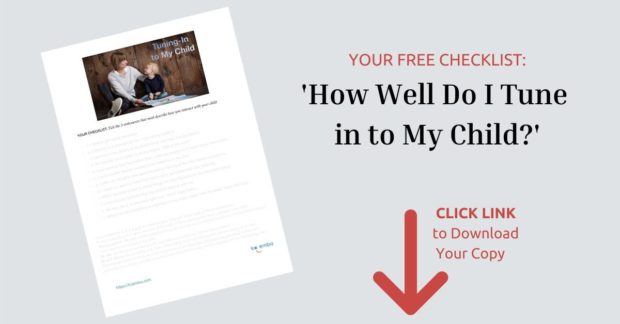Are you feeling stressed as a parent during this time of coronavirus lockdown?
Worried about how to cope with kids at home 24/7 for who knows how long?
What issues is the coronavirus pandemic raising for you and your family in your own home?
Do you have kids underfoot, who are needing to work off energy?
Are you concerned about how to give emotional support to kids who are missing their wider family, friends, and their activities?
What about the nightmare of home-schooling? And how to keep a routine for your child?
Or perhaps you are facing other parenting worries, like sibling fighting, bed-wetting that had previously stopped months or even years ago, or an anxious child who won’t settle at night.
This, on top of the tsunami of other stresses that the coronavirus pandemic has flung upon us. Who would ever have thought our lives would be turned upside down so quickly as we entered this new millennium!
So, what does a parent do? Here are ways to make home life calmer in this time of stress.
#1 Don’t try to be Super-Parent
It’s more important at this time to be a “good- enough” parent than worry about being a ‘super-parent’ – choose what really matters, and recognise that life won’t be perfect at this time. This is a time, more than any other time, that your family need the place they live to be a comfortable home, not a showhouse.
And your children need you to be their parent more than they need you to be effectively home-schooling.
So be easy on yourself, and be easy on your children. Connection matters far more than perfection ever could.
#2 Remember life isn’t ‘normal’ for any of you at present
There will be times when you or your kids might behave in ways you might not feel proud of.
An abnormal reaction to an abnormal situation is normal behaviour.
Victor Frankl
If there is a meltdown in the family, figure out how to ease the tensions and get relationships back on track. You and your family all need home to be a soft place to fall, especially in this stressful time, when life isn’t normal.
#3 Know that anxiety is normal in challenging circumstances
We deal better with our emotions when we acknowledge them. It’s totally normal to feel anxious when we are facing strange or unknown situations that we have never experienced before. Our inner reactivity is triggered, in an attempt to keep us safe. And our children are experiencing this anxiety too.
When we help our children to name and claim their emotions, we help them to tame them. The emotion is not ‘wrong’ or ‘bad’. Anxiety is an inner signal: “Watch out – be careful!” Our feelings are not wrong, it’s what we do with them that counts.
Deeply listening to your child, if and when they choose to talk about what’s worrying them, helps them to articulate their own experiences about lockdown at home – to name, claim and tame their emotions.
For more on this see my blog, “How to Listen So Your Child Will Talk”
Click this link for your free checklist: “How Well Do I Tune in to My Child?”

CLICK THIS: YOUR DOWNLOAD LINK
#4 Keep in mind how you would like to remember this lockdown period in later years
There are many factors that are beyond our control, but one thing that is within our control is how we choose to respond or react to a challenging situation.
Keep in mind, “What really matters here?”
“What do I want to model to my children?”
Imagine how you would like to remember this lockdown period in future years. How would you like your children to remember it?
#5 Set flexible boundaries around the activities that need to happen
A routine will help you and your family to feel a sense of security, and will be needed if you have to work from home. Yet, too rigid a structure in routine will cause stress at a time when stress levels are already sky high. We need to ‘flatten the curve’ of our family stress levels, by creating and upholding only boundaries that support family well-being.
The more you can collaborate together around the boundaries that are needed in the home at this time, and discuss why these limits matter, the more co-operative you can all be to one another’s needs.
Create boundaries for yourself and your children, not only for ‘work’ time but for ‘off’ time too – without checking the smartphone for work, without finishing that one last work task, that tends up taking far more time than you anticipated …
Schedule for shared fun and relaxed times that nurture your family well-being.
#6 Give yourself a break
You’re not getting any time away from your children. That’s tough – no matter how much you love them! At present, there is no-one (except those in your household) to physically share the load of raising a child, at a time when you most need support. Find that safe and encouraging space with like-minded people online, where you can share the challenges you’re facing. Or join up with friends online for a natter, or a bit of fun. You need some adult company too!
#7 Give Your Kids a Break
Figure out ways your children can connect with their friends, and with other people who are special in their lives. Give them time to chill – they need a break from you too. And create ways for them to ease their stress of not being able to connect with the people they care about at this time.
Writing letters and making art work to send to people they care about may help them to feel connected during this time of isolation.
#8 Build in time for fun, activity, relaxation and creativity
Having fun, colouring in, art or craft activities, gardening, taking the dog for a walk, mindfulness practices – all these gentle activities help to soothe our inner reactivity and re-establish a sense of calm, that lowers the stress levels in our bodies (and also supports our immune system!) This past week, I created a ‘picture story book’ of my life in lockdown, which I posted to my elderly mother, who is in the early stages of dementia, whom I cannot currently visit in her carehome. I was surprised how much I enjoyed making it, and how soothing it was to create and colour my own pictures. Now is the time to get out the art materials, to try a new craft, to use chalks to decorate a brick wall or create a driveway drawing. Remember the non-tech activities you did as a child – or ask the older generation. Ball games, simple card games, memory games, can all be fun experiences for children.
#9 Be okay with your children telling you they are “bored”
Out of boredom grows creativity. And, particularly in this time of high anxiety, we all need time to chill out, including children! Doing “nothing” gives our brains time to process new and unexpected circumstances.
What book or movie is your child enjoying? Invite them to ‘bring the story to life’. Help them find them props and materials for creative expression and encourage them to ‘surprise’ you with activities like creating their own plays, puppet shows, or 3D constructions. Help children to look around and find objects to use in their creations. For example, can you rummage through the wardrobes to create a dressing-up box?
Then step out the way, unless they ask your help to solve a particular problem. Children’s imaginations work better when given their own space.
(When I was about ten years old, I spent weeks creating a 3D map of “The Wind in the Willows” in our back garden. (Although I had three siblings I chose this to be a solitary activity; it had me totally absorbed for many hours).
#10 Notice all the things for which you are grateful
An attitude of gratitude is one of the greatest antidotes to stress. Perhaps at a mealtime every day, start by each naming at least one thing you are thankful for – and try to think of different things each day.
- Keep a thankfulness journal.
- Every time I wash my hands I think of a different thing for which I am thankful as I wash the space between the fingers. What was a constant reminder of the COVID-19 stress is transformed into a simple gratitude habit.
- Secure a large sheet of paper on the wall and encourage everybody to write or draw things they are thankful for. Keep the drawings small (or the paper very large!) so there is plenty of space to keep adding to the mural!
Life is fragile. And the present coronavirus pandemic has made us more aware of that than ever before. Look for the rainbows every day!

Now it’s over to you: Which one of these thoughts most resonates with you, that could ease your parenting stress during the coronavirus lockdown? What will you choose to do implement this? Make a conscious plan and write it down, that way you are far more likely to implement it.
Blog post by Val Mullally
Activating Your Inner Wisdom in Work, Parenthood and Life



Excellent tips. I don’t handle the “bored” complaint very well. This is a good reminder.
Thank you so much Val, fantastic tips & ideas!
Thank you, Aoife. Glad you found it helpful